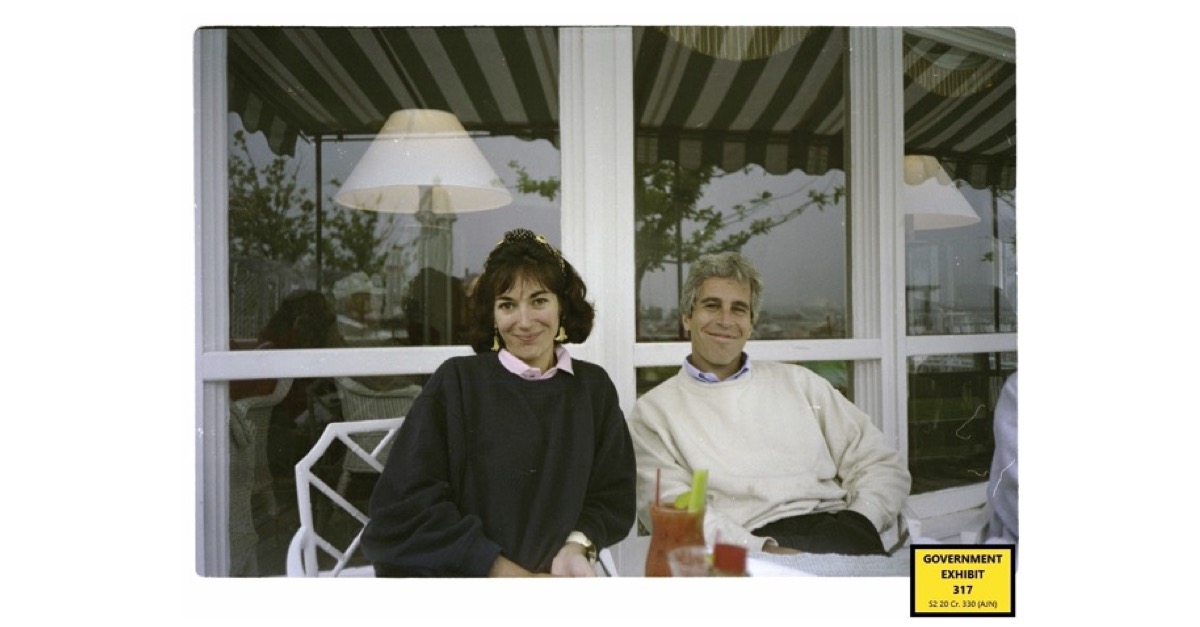
Photo courtesy DOJ
Ghislaine Maxwell will not testify in her own defense during her long-awaited sex-trafficking trial, averting what legal experts describe as a risky move in her quest to beat criminal charges that could put in her prison effectively for the rest of her life.
“Your honor, the government has not proven its case beyond a reasonable doubt, and so there is no need for me to testify,” Maxwell said.
On Thursday, Maxwell’s attorneys signaled that their defense case—initially intended to feature as many as 35 witnesses—would wrap up on either Friday or early Monday morning, with only a fraction of that number called to the stand.
The daughter of the late U.K. media baron Robert Maxwell, the accused Jeffrey Epstein accomplice is now standing her third week of trial. She has been charged with six offenses, roughly breaking down into alleged violations of the Mann Act and sex trafficking charges.
During the first two weeks of trial, the government called four women who claim that Ghislaine Maxwell facilitated Epstein’s sexual abuse—a few said that Maxwell participated in it herself by touching their breasts—when they were teenagers.
Three of the four claim that they were minors, though it is undisputed that one was above the age of consent during the time charged in the indictment.
Attorney Mitchell Epner, a former federal prosecutor who led intake on sex-trafficking cases in the District of New Jersey in 2003 and 2004, told Law&Crime that he believed any decision to testify would “go quite badly” for Maxwell.
“I base my opinion on her publicly-available civil deposition, where she was arrogant, combative and strained credibility beyond its breaking point,” said Epner, who is now of counsel with the firm Rottenberg Lipman Rich PC. “In fact, she was indicted on two counts of perjury for statements she made during that deposition.”
Maxwell’s defense won a pre-trial motion to have those two perjury counts tried separately from the ongoing criminal proceedings.
“In my experience, if a jury concludes that a defendant lied on the stand, they will convict on all counts,” Epner said.
The U.K. Mirror reported that her family said she was “too fragile” to take the stand. Maxwell’s siblings have urged intervention in the case by the United Nations and U.S. Attorney General Merrick Garland, claiming brutal conditions in a pre-trial lockup in a Brooklyn federal jail have made it difficult for her to engage in her trial.
Maxwell herself has appeared alert and engaged in her defense inside court, frequently jotting down notes for her attorneys.
Throughout Maxwell’s trial, the prosecution and the defense presented sharply contrasting portrayals of the accused sex trafficker. Prosecutors claim that she repeatedly groomed minors for Epstein’s sexual abuse and sometimes groped the alleged victims herself. Two former pilots for Epstein—Lawrence Visoski and David Rodgers—both described Maxwell as his “No. 2.” Epstein’s former house manager Juan Alessi testified Maxwell described herself as the “lady of the house,” and he said she was with the boss 95 percent of the time.
Though defense attorneys tried to play down Epstein and Maxwell’s relationship, prosecutors succeeded in introducing what appear to be close and intimate photographs taken for a number of years. They are just a few of an estimated thousands of pictures recovered in the FBI’s 2019 raid on Epstein’s New York townhouse.
Closing arguments are anticipated for Monday, and the jury may get the case for deliberations before the Christmas, which will mark Maxwell’s 60th birthday.